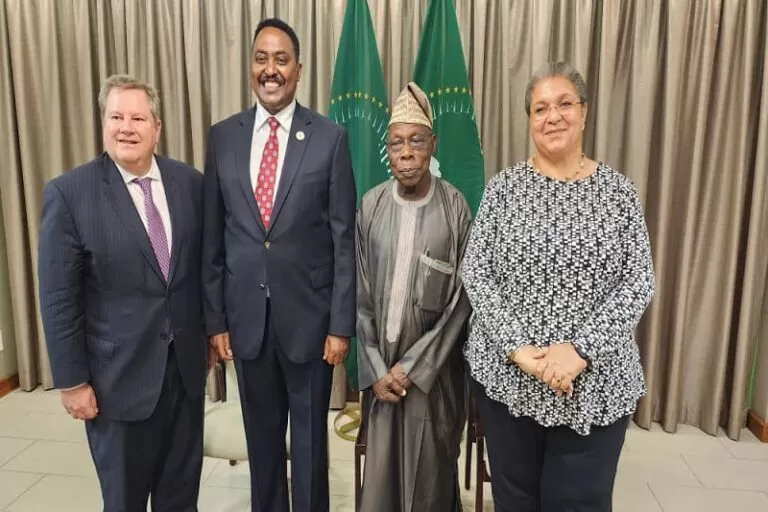

clashing forces from ethiopia and tigray agree to a cessation of hostilities
Last updated on November 3rd, 2022 at 03:45 pm
On Wednesday, after two years of devastating civil war, the Ethiopian government and the leaders of the northern Tigray region agreed to cease fighting as part of a deal that offered a path out of a conflict that has killed hundreds of thousands and displaced millions in Africa’s second-most populous country.
After ten days of peace talks organized by the African Union, senior officials from both sides shook hands and grinned after signing an agreement in South Africa to end hostilities. The signing took place after senior officials from both sides signed the accord.
On November 2, 2020, one day before the second anniversary of the start of the war, when simmering tensions between Ethiopia’s Prime Minister Abiy Ahmed and the defiant leaders of the country’s Tigray region erupted into violence, an unexpected deal was reached. It was the day before the second anniversary of the beginning of the war.
In the beginning, Mr. Abiy, who is a winner of the Nobel Peace Prize, referred to the conflict as a “law and order” campaign and promised that it would be over quickly and without any casualties? But it swiftly developed into a grueling struggle that was accompanied by many atrocities, including civilian massacres, gang rapes, and the use of famine as a weapon of war. Getachew Reda, a well-known leader of the Tigray People’s Liberation Front, and Redwan Hussien, Mr. Abiy’s national security adviser, signed the agreement in Pretoria, the administrative capital of South Africa.
It includes a slew of provisions for disarming fighters, allowing humanitarian supplies to reach Tigray (where five million people have an urgent need for food help), and providing a measure of stability to Ethiopia. Both parties said in a joint statement that they had reached an agreement to put a stop to the fighting that had been going on in northern Ethiopia for the past two years.
However, those in charge of mediating the conflict emphasized that this was only the beginning of what would almost certainly be a long and arduous process of negotiation before a lasting peace could be achieved. There was a lack of clarity regarding the process by which the provisions of the deal would be monitored or carried out. Also, the negotiators warned that the process could still be stopped by both internal and external factors, which would lead to fighting in Ethiopia starting up again.
It’s fine if you want to keep Dobby’s grave on the beach in Wales, but please stop bringing him socks. The African Union chose former Nigerian President Olusegun Obasanjo to represent the group. He said that “this moment is not the end of the peace effort,” but rather “the beginning of it.”
After weeks of sweeping military advances by his troops across Tigray with the support of allied forces from Eritrea, the neighboring country to the north, Mr. Abiy agreed to the arrangement at a moment of military superiority. His troops had been assisted by forces from Eritrea, which is located to the north. But it also happened despite strong warnings from the U.S. and the U.N. that more crimes were likely to happen in a war that had already been filled with many wrongs, such as ethnic cleansing.
Vida e Caffè achieved a major milestone when they opened their 300th South African outlet in Secunda Mpumalanga making it…
The Trade Promotion Organization of Iran revealed its plan to launch a special shipping line to West Africa through its…
Expansion in the global rare earth industry makes Africa stand out by predicting this region will reach 10% market supply…
Exxaro Resources Limited chose Ben Magara to lead the company as CEO starting April 1, 2025. The firm conducted an…
The National Treasury reduced the VAT tax increase to end the government coalition conflict in South Africa. The Finance Minister…
The International Finance Corporation (IFC) enabled South African green building growth by giving $250 million to Standard Bank for an…
This website uses cookies.